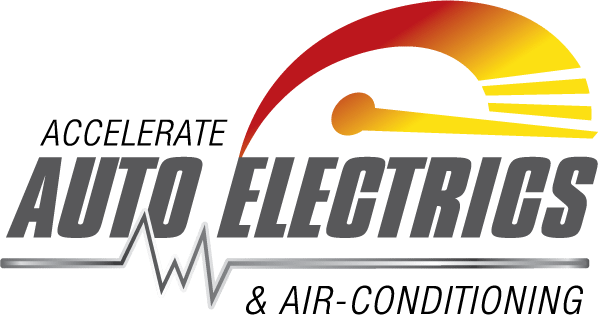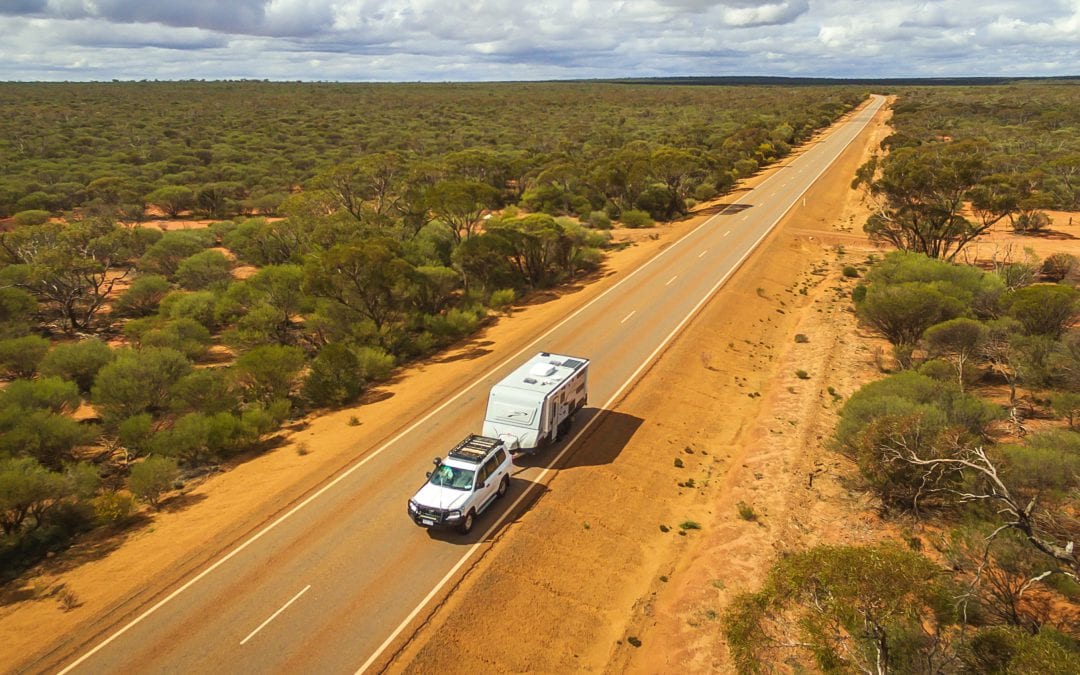When towing a caravan, camper trailer or any other trailer for that matter, safety should always be the number one priority. Thankfully there are plenty of devices and accessories on the market that can assist with keeping you and your family safe on the road. We’ve listed a few useful accessories we recommend for towing below as well as some helpful advice for those new to towing.
Electric Brake Controller
Not only is this our number one recommendation, but in Australia, it is also a legal requirement. Any trailer or caravan with a GTM over 750kgs must have electronic brakes, therefore, an electric brake controller to also be installed. The controller receives power via the vehicle’s brake light feed, communicating with the controller to apply the trailer brakes when the vehicle brakes are applied.
We recommend Redarc TowPro Elite and Elecbrakes Wireless brake controllers.
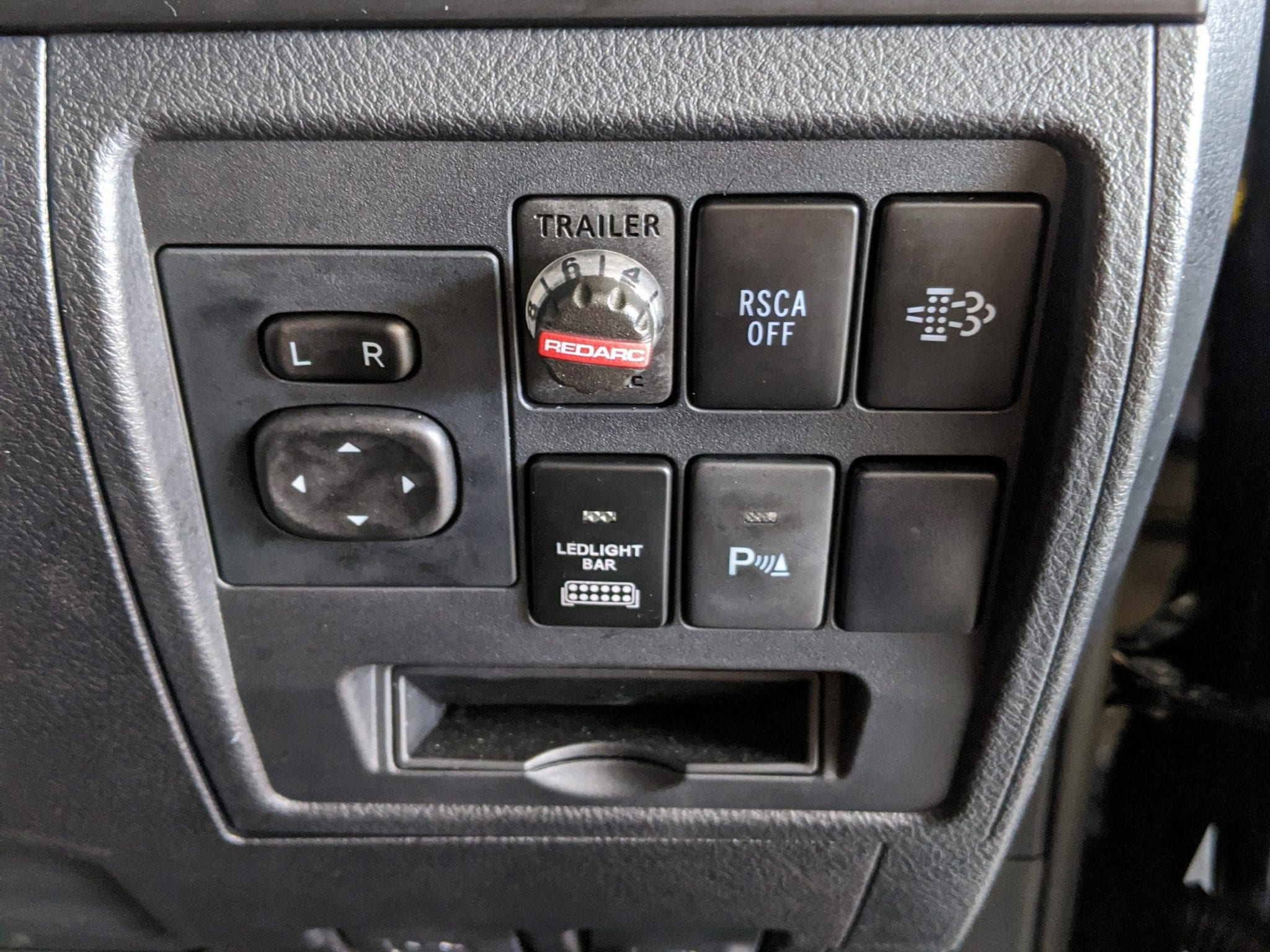
Breakaway Systems
Here in Australia, if your caravan is over 2000kg GMT you are required by law to install a breakaway system. These systems are designed to immediately apply the caravan brakes in the event that your caravan becomes uncoupled from your vehicle. There are quite a few options as far as units go, (we like the BMPRO TrailSafe) and additional state regulations as to how the device is to be powered. If you are looking to tow a large caravan, we would suggest looking into the regulations of your state and contacting your caravan manufacturer to see what is best suited to your set up.
Read More: Breakaway Systems and the Law
Electronic Stability Control
Although it is not a legal requirement to have ESC installed on your caravan this is another safety device that we highly recommend, especially for those with heavier vans.
Electronic Stability Control was originally developed for vehicles to assist drivers to control a vehicle in the event of an emergency. Although the concept is similar, a Caravan ESC system works a bit differently. Caravan ESC uses a sensor, usually mounted underneath the caravan, to monitor for sudden sideways movement. These movements can be anything from one large sideways movement (caused by a passing vehicle) or multiple small shifts that build up over time. When the determined point of lateral movement is reached the ESC system will apply the caravan’s brakes, correcting the caravan into place.
Read More: Caravan ESC: What is it and why should you get it?
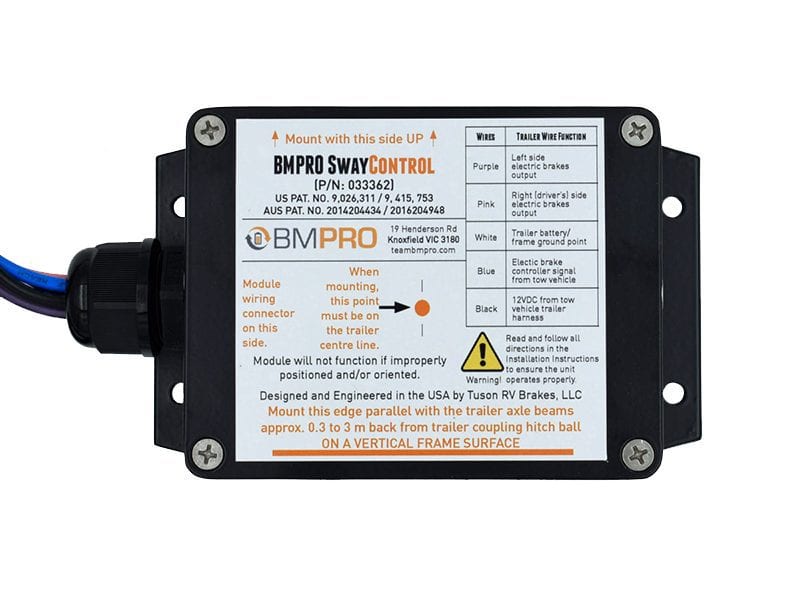
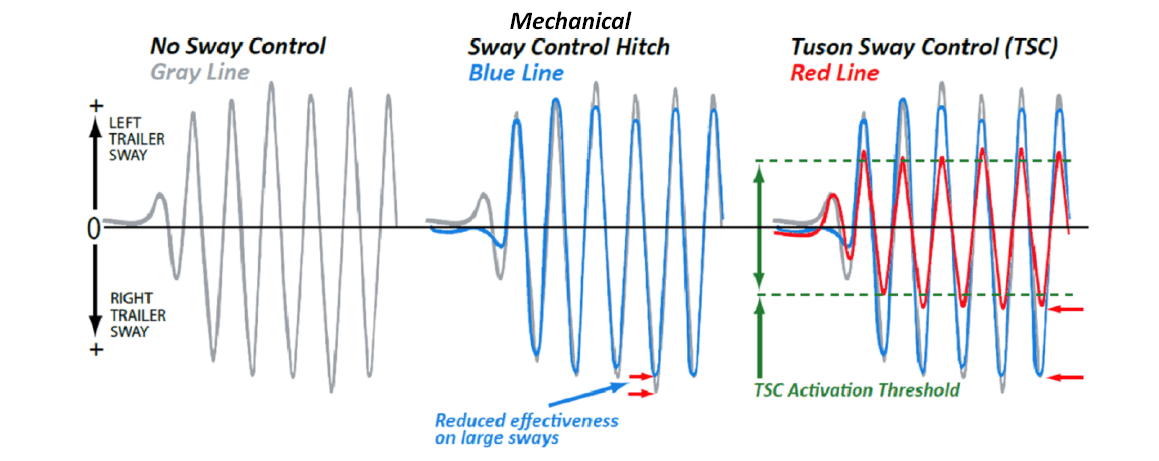
Rear Vision Cameras
Want to make changing lanes, overtaking and reversing with the caravan a whole lot easier? Then Rear Vision Cameras are the answer. We recommend installing dual cameras, one on the rear of your vehicle to view the trailer hitch and the other on the rear of your caravan. Additional cameras can also be installed on the side of your van to keep an eye on things while getting your van into those tight caravan spots. Our go-to when it comes to cameras is Safety Dave due to their huge range of camera styles and mounting options.
Read More: Why get a Rear Vision Camera for Towing?
WeighSafe Tow Hitch
This is definitely not a necessary accessory for towing, but it is very useful to have. The WeighSafe Drop Hitch is currently the only trailer hitch on the market that has a built-in scale to effectively measure the ball weight of your tow load. With the WeighSafe there is no guesswork and measuring your ball weight is as easy as coupling your trailer to the tow ball on your vehicle.
Learn More: Product Feature: WeighSafe Adjustable Tow Ball Hitch
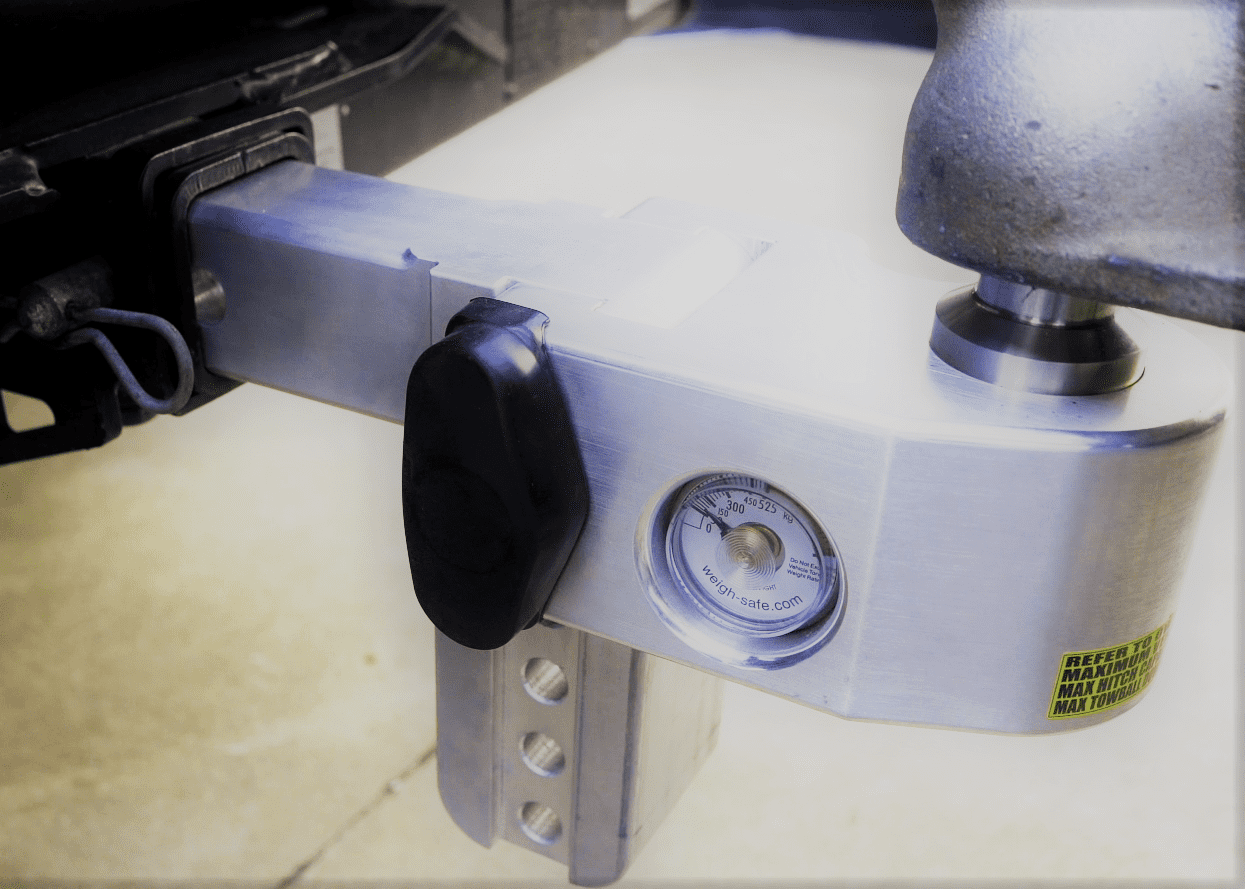
Now for some advice…
Know your Limits
It is vital for towing safety that you are aware of the limits of your vehicle and trailer. There is a lot to consider when it comes to weight limits, distribution and ratings when comes to towing. Being aware of your Aggregate Trailer Mass (ATM), Tare Weight (TARE), Gross Vehicle Mass (GVM), Gross Combination Mass (GCM) will ensure your vehicle and caravan are properly suited before hitting the road. Your vehicle and caravan manufacturers will be able to assist with sourcing this information.
Drive to Road Conditions
When you’re out exploring it is common to encounter a wide range of road conditions that you need to be prepared for.
- Unsealed Roads – Watch for loose gravel and rocks on the edge of the road, slow down and
- Narrow Roads – Take care around corners and over crests as you may not know what is on the other side. Remember to take your corners slow and a little wide where possible.
- Steep Inclines/Declines – You’re towing quite a bit of weight so expect to travel a lot slower up hill. As a courtesy to other drivers, and only when safe to do so, pull over to let vehicles pass by. When travelling downhill, keep in mind the weight of the trailer behind you. Use your engine braking and gears to control your speed as much as possible and adjust your electric brakes as needed. Firm, interval braking will prevent your brakes from overheating.
- On Sand – To start, make sure your rig is capable of handling the track. If you are confident that it is safe to proceed, lower your tyre pressures and have your recovery gear handy in case you need it. Check out this post for more tips for driving on the beach.
When in doubt take it slow and steady. Everyone wants to get to their destination safe and sound so take your time and enjoy the journey.
For more towing tips check out some of our other posts:
